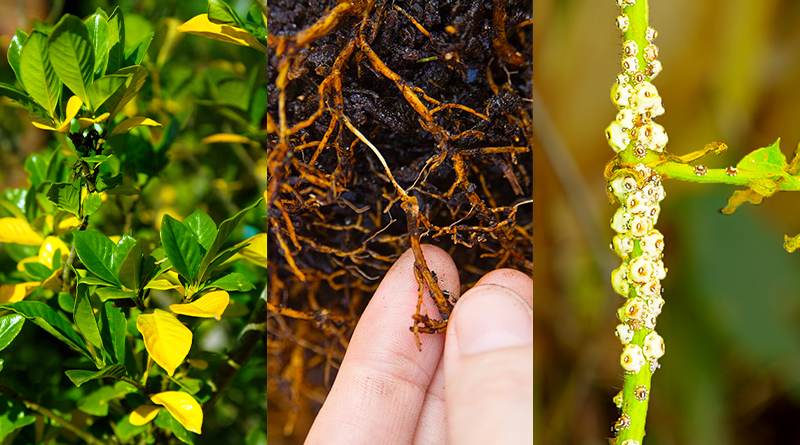Why Are My Gardenia Leaves Turning Yellow?
Gardenia is a flowering plant in the coffee family, native to the tropical and subtropical regions of Africa, Asia, Madagascar, Pacific Islands and Australia. In addition to the beauty and smell of the gardenia flower, its shiny and dark green leaves are a major selling point. So why are your gardenia leaves turning yellow?
Causes of Leaves Yellowing
There are a few possibilities. Because they’re one of the prima donnas of the plant world, gardenias need everything to be just so, from the soil pH and drainage to the amount of water and fertilizer you give them. Let’s learn in brief about the causes of leaves yellowing.
Chlorosis
Chlorosis means a plant is not getting enough chlorophyll and suffering from a nutrient deficiency which turns leaves yellow. In the gardenia’s case, yellow leaves may be a clue that the plant is suffering from a lack of iron, which is needed to help produce chlorophyll.
Root Rot
Over-watering or growing a gardenia in soil with poor drainage can cause root rot along with the yellow leaves. You will notice soft, mushy brown roots where there should be dry white or tan roots. If root damage has occurred, it may be too late to fix the problem. So, it will be best to replace the gardenia.
Lack of Nutrients
Iron problem, there could be an insufficient amount of nitrogen or magnesium resulting in yellowing leaves. This is especially prevalent in older gardenia plants.
Weather Change
Rapid changes in weather are most often the cause of yellowing leaves. Cooler night-time temperatures or brief periods of cool weather are likely to trigger minor yellowing.
Pest Problem
Nuisance insects may also cause gardenia leaves to turn yellow. Aphids, white-flies, spider mites are of particular interest, though these seldom cause severe damage to established gardenia plants.
101 total views, 1 views today




